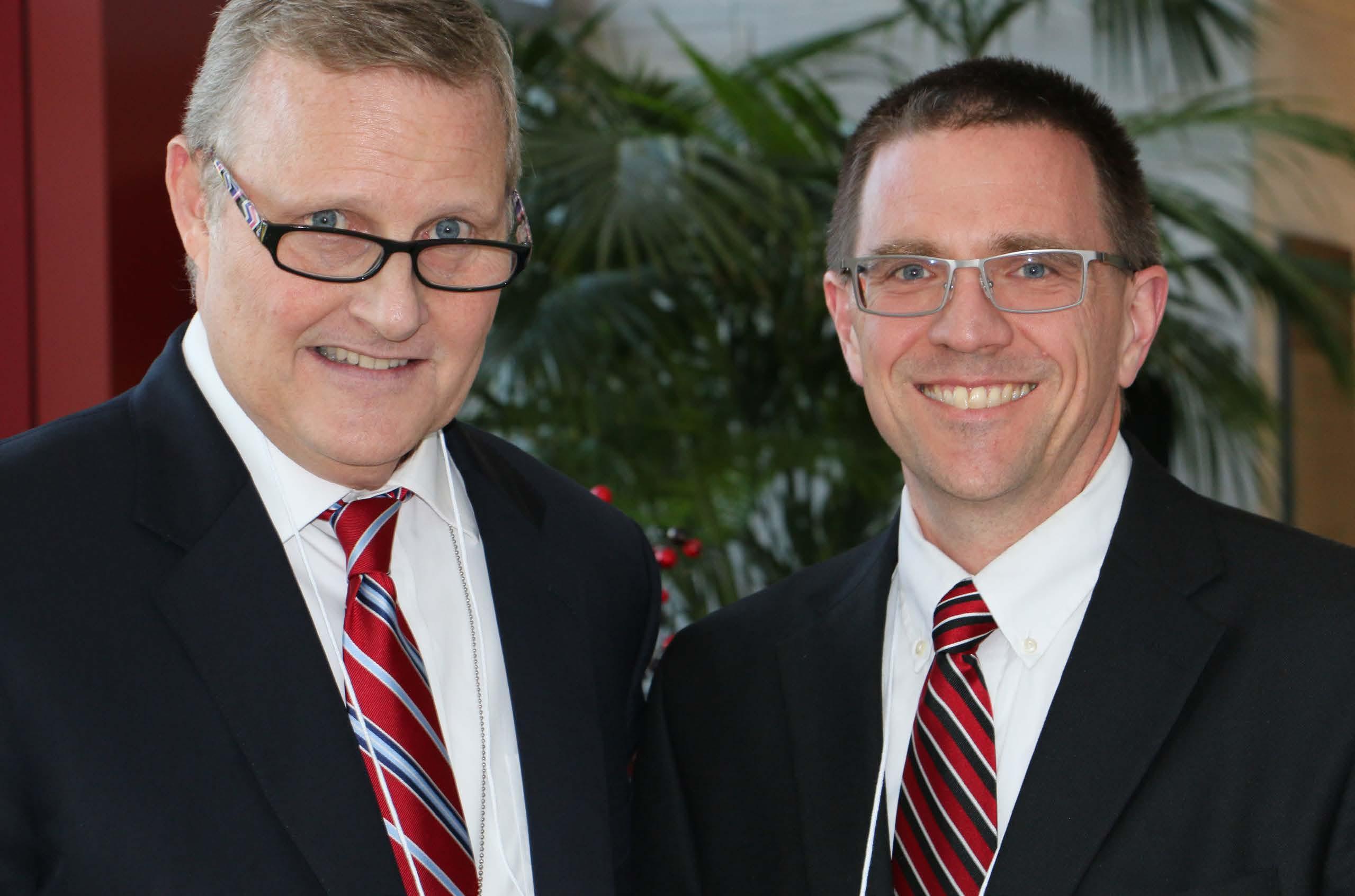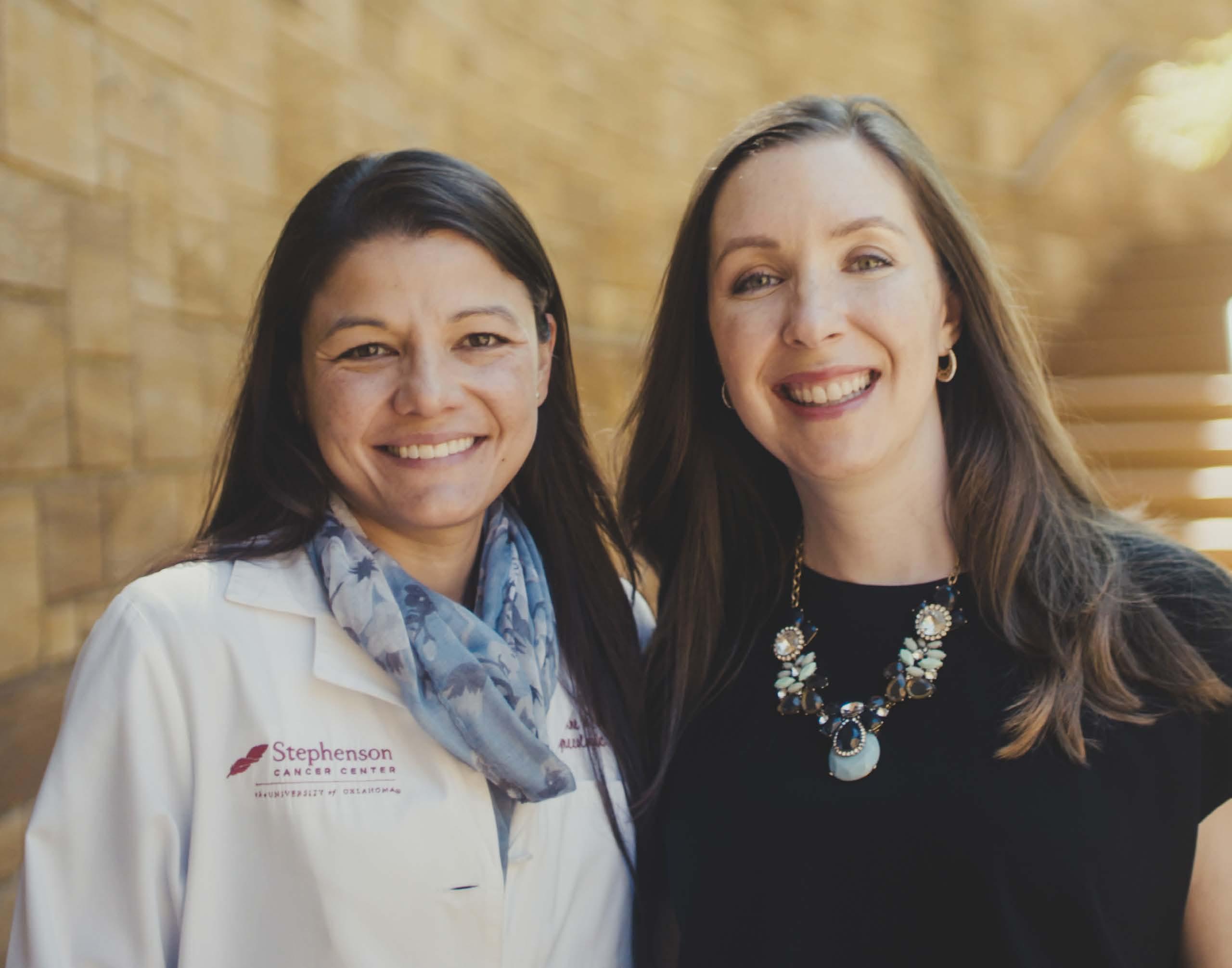MEDICAL EDUCATION
interact with healthcare professionals and researchers. Programs like Club Scrubs and Mini Medical School have already seen success in sparking interest among young people. Robert Salinas, M.D., a family medicine physician and assistant dean for diversity, said the success of such programs hinges on supporting students for years along the pathway to medical school. “We believe that we can address the inequities in healthcare by bringing in students from diverse backgrounds – women, people from rural Oklahoma, the Latino and Hispanic communities, Native Americans, African-Americans and others who have traditionally been under-represented,” Salinas said. “Data suggests that if you bring in a more diverse workforce, you have better health outcomes. Those better outcomes may happen for a number of reasons – understanding the patient, culturally and linguistically, understanding their belief systems – but the overall goal is to bring in more students from around the state who want to go back and serve their communities, specifically in primary care.” Faculty from both campuses plan to reach out to primary care physicians in communities across the state to enlist them in mentoring young people who dream of becoming physicians or other healthcare providers. Doctors across Oklahoma are especially positioned to identify young people, perhaps their own patients, who are interested in medicine. “This grant asks us to be innovative and to create strategies – how do we reduce health disparities by bringing in students from under-represented groups who want to go back and serve their communities?,” Salinas said. “In what ways can we expose our current medical students to the importance of primary care? I believe this type of work is an institutional responsibility. As an academic health system, we have an obligation to provide leadership for the state.”
Brain Tumor Center in San Francisco in the laboratory of Shawn L. Hervey-Jumper, M.D. Almeida’s project focused on primary brain tumors in adult patients, who often lose the ability to speak, read or write. In particular, he explored tumor cells that affect the pathways controlling cognition in the brain. Findings from the study will lead to better understanding of the brain’s ability to repair and modify itself in response to brain tumors. “Understanding the pathophysiology of this disease is critical for developing the next generation of cutting-edge treatments,” he said. Almeida said he has long had a goal of becoming a physician-scientist. Working in an internationally recognized research laboratory is a significant opportunity on that path. “Improvements to medical care don’t occur in a vacuum,” he said. “Translational research has always been fundamentally important in bringing advancements from bench to bedside. For this reason, I find it fascinating to be involved in work that could potentially lead to novel treatment options and bring about tangible benefits.” Recipients of the AOA research fellowship are excellent students who want to increase their understanding of scholarly discovery, said Annie Moreau, M.D., associate professor in the Department of Ophthalmology and AOA councilor for the OU College of Medicine. “We are very proud of Nyle’s academic excellence and his enthusiasm for this research fellowship,” Moreau said. “He will no doubt be a wonderful physician who understands the value of research in providing the very best care for his patients.”
This project is supported by the Health Resources and Services Administration of the U.S. Department of Health and Human Services as part of an award totaling $4,704,476 with 10% financed with nongovernmental sources. The contents are those of the authors and do not necessarily represent the official views of, nor an endorsement, by HRSA, HHS or the U.S. Government.
AOA Awards Research Scholarship to Medical Student OU College of Medicine student Nyle C. Almeida, a member of the Class of 2022, spent the summer participating in a research fellowship made possible by a grant from the Alpha Omega Alpha medical honor society. Almeida was awarded the AOA’s 2019 Carolyn L. Kuckein Student Research Fellowship, which provides a $6,000 award for medical students to undertake a research project with an academic mentor. Almeida conducted his research at UCSF
Associate Dean for Student Affairs Mark Fergeson, M.D., presents a check to medical student Nyle C. Almeida for his participation in the AOA summer research fellowship.
[ Fa l l / Wi n t e r 2 019 ]
15











































